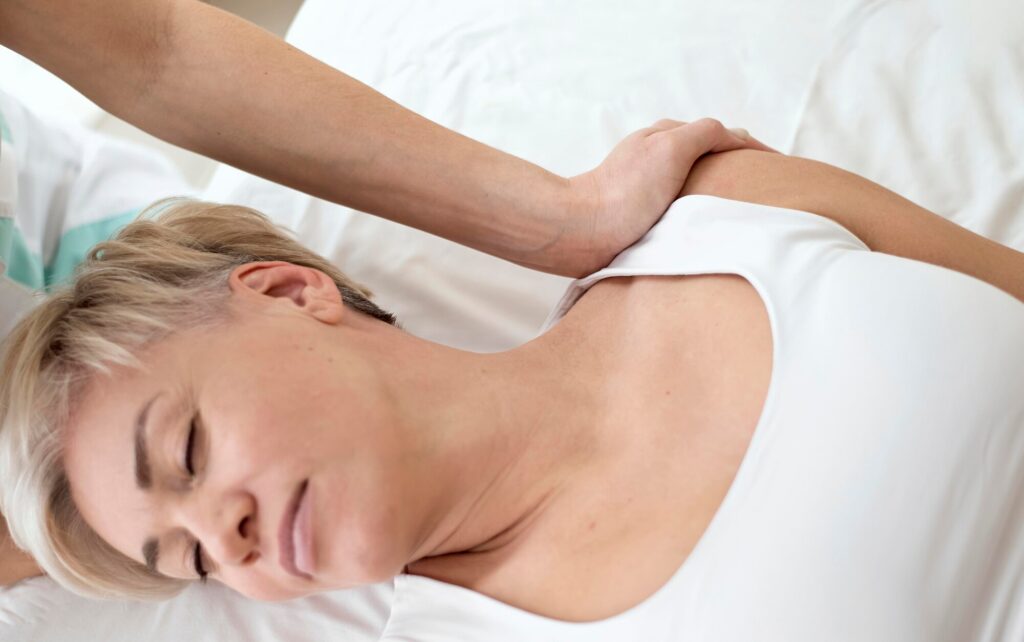Understanding stress hormones
Stress hormones are chemicals released by the body in response to perceived threats or challenges, and they are primarily controlled by the adrenal glands. The most well-known stress hormone is cortisol, which plays a significant role in the body’s “fight or flight” response. When faced with stress, the hypothalamus in the brain triggers the release of cortisol and other hormones, which prepare the body to either confront or escape the stressor. In the short term, this hormone helps to increase energy levels, suppress non-essential bodily functions, and heighten alertness.
However, when stress becomes chronic, the continuous elevation of cortisol levels can have negative effects on the body. Chronic high cortisol levels are linked to a range of health issues, such as weight gain, poor sleep, weakened immunity, digestive problems, and mental health disorders. This is where therapeutic massage comes into play. By promoting relaxation and reducing physical tension, massage has the ability to influence the body’s stress hormone levels, helping to restore a more balanced physiological state.

The impact of therapeutic massage on stress hormones
Therapeutic massage works in several ways to affect the release of stress hormones, particularly cortisol. One of the most well-documented benefits of massage therapy is its ability to lower cortisol levels in the body. Research has shown that a single session of therapeutic massage can result in a significant reduction in cortisol, with some studies indicating a decrease of up to 30%. The reduction in cortisol levels can help alleviate the symptoms of stress, providing both immediate and long-term relief.
Massage also stimulates the release of other hormones that promote relaxation and well-being, including oxytocin, serotonin, and dopamine. Oxytocin, known as the “cuddle hormone,” is released during positive physical interactions, and its release during massage promotes feelings of comfort and safety. This hormone helps counteract the effects of cortisol and reduces the body’s stress response.
Additionally, serotonin and dopamine are neurotransmitters associated with feelings of happiness and pleasure, and their increased production during massage can further enhance mood and reduce anxiety. By lowering cortisol and increasing levels of mood-enhancing chemicals, therapeutic massage creates an environment where the body can enter a state of deep relaxation. This not only helps to reverse the physiological impact of stress but also supports the body’s natural healing processes. With regular massage therapy, individuals can experience a gradual reduction in their overall stress levels, leading to improved health and well-being.
Types of therapeutic massage and their effects on stress hormones
Different types of therapeutic massage offer varying effects on the body’s stress hormones, depending on the techniques used and the goals of the treatment. Swedish massage, for example, is known for its gentle, relaxing strokes and is often used to promote relaxation and reduce stress.
This type of massage is particularly effective for lowering cortisol levels and enhancing feelings of calm and relaxation. Deep tissue massage, on the other hand, focuses on the deeper layers of muscle tissue and is often used to address chronic pain and muscle tension. While it can be more intense, deep tissue massage is also effective at reducing cortisol levels and promoting the release of endorphins, the body’s natural painkillers. By targeting tight muscles and fascia, deep tissue massage helps to release stored tension and stress, providing both physical and emotional relief.
Other forms of massage, such as aromatherapy massage or hot stone massage, may also influence stress hormone levels in a similar way. Aromatherapy massage incorporates essential oils that have been shown to reduce cortisol levels and promote relaxation. Essential oils such as lavender, chamomile, and ylang-ylang have calming effects on the nervous system, further enhancing the stress-reducing benefits of massage. Hot stone massage, which involves the use of heated stones placed on the body, can induce a deeply relaxing response and reduce cortisol levels while simultaneously promoting improved circulation and muscle relaxation.

The role of therapeutic massage in stress management
Stress management is essential for maintaining both physical and mental health. Chronic stress has been linked to a variety of health conditions, including heart disease, diabetes, autoimmune disorders, and depression. While there are many strategies for managing stress, such as exercise, mindfulness, and diet, therapeutic massage stands out as a highly effective, non-invasive treatment option that can be integrated into a broader stress management plan.
Massage not only reduces cortisol levels but also encourages the body to enter the parasympathetic nervous system state, which is often referred to as the “rest and digest” state. This is the opposite of the “fight or flight” response that is triggered during stressful situations. When the parasympathetic nervous system is activated, the body experiences lower heart rate, reduced blood pressure, and slower breathing, all of which contribute to a greater sense of relaxation and calm.
By incorporating regular massage sessions into one’s routine, individuals can experience improved resilience to stress, a stronger immune system, and better overall mental health. Many people find that massage therapy helps them to manage their stress more effectively, leading to improved productivity, better sleep, and a higher quality of life.
Massage as part of a holistic approach to stress relief
Although therapeutic massage is highly effective in reducing stress hormones and promoting relaxation, it is most beneficial when combined with other stress-reducing practices. A holistic approach to stress management may include a balanced diet, regular physical activity, adequate sleep, mindfulness, and relaxation techniques such as deep breathing exercises or meditation.
For example, combining massage with yoga or tai chi can further enhance the relaxation response by promoting body awareness, flexibility, and deep breathing. Similarly, practicing mindfulness or meditation alongside massage therapy can help individuals become more aware of their stress triggers and develop healthier coping mechanisms. By addressing stress from multiple angles, individuals can achieve a more balanced lifestyle and better manage the impact of stress on their health.

